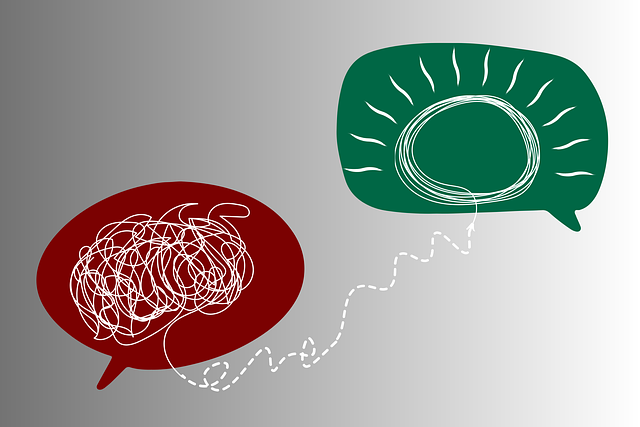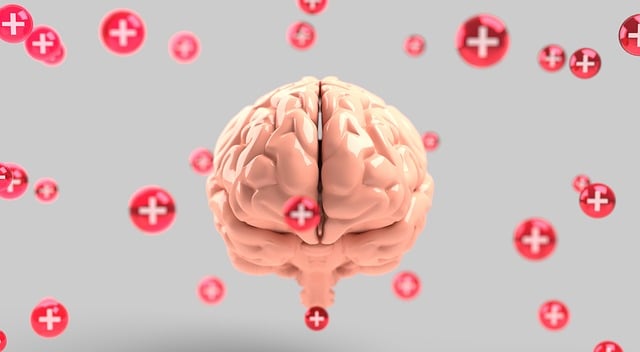Arvada Family Counseling Therapy focuses on improving social skills through evidence-based practices, empowering clients with tools for better communication, emotional regulation, and relationship building. They address mental health challenges stemming from isolation and poor social interactions, offering workshops, tailored support, and a safe space for families to strengthen bonds and navigate dynamic family issues.
Social skills training is a powerful tool for managing mental health conditions, addressing the often overlooked aspect of social interaction. This article delves into the intricate relationship between social skills and mental well-being, exploring how poor social interactions can exacerbate symptoms. We identify specific challenges faced by individuals with mental health disorders in various social settings. Through counseling therapy, we uncover effective strategies to enhance these skills. Real-life examples, such as Arvada Family Counseling Therapy’s success stories, demonstrate the transformative power of targeted interventions.
- Understanding the Link Between Social Skills and Mental Health
- The Impact of Poor Social Interaction on Well-being
- Identifying Challenges in Social Settings for Individuals with Mental Health Conditions
- Strategies for Enhancing Social Skills Through Counseling Therapy
- Real-life Success Stories: Arvada Family Counseling Therapy in Action
Understanding the Link Between Social Skills and Mental Health

Social skills training plays a pivotal role in managing mental health conditions, especially for individuals seeking Arvada Family Counseling Therapy. The connection between social skills and mental well-being is deeply intertwined; one’s ability to interact, communicate, and form meaningful connections significantly impacts their overall mental health.
At Arvada Family Counseling Therapy, we emphasize the importance of understanding that social skills are not just about conversation but also building relationships, reading non-verbal cues, and managing emotions in various social settings. Our Mind Over Matter Principles focus on empowering clients with effective communication tools, conflict resolution strategies, and emotional regulation techniques to enhance their daily interactions. Through Depression Prevention and Stress Management Workshops, we help individuals navigate social situations more confidently, fostering a sense of belonging and support, which is crucial for combating loneliness and anxiety often associated with mental health struggles.
The Impact of Poor Social Interaction on Well-being

Poor social interaction can significantly impact an individual’s mental health and overall well-being. In today’s digital era, where virtual connections have become prevalent, it’s easy to forget the value of face-to-face interactions. Arvada Family Counseling Therapy highlights that meaningful relationships are a cornerstone of emotional healing processes. When individuals struggle with social skills, they may withdraw from social activities, leading to feelings of isolation and loneliness. This can exacerbate existing mental health conditions, such as depression and anxiety, further impacting their quality of life.
At Arvada Family Counseling Therapy, we understand that building empathy and developing inner strength are crucial components of improving social interactions. Our counseling services focus on teaching effective communication strategies and fostering understanding, which are essential for forming and maintaining healthy relationships. By learning these skills, individuals can navigate social situations more confidently, leading to improved mental health outcomes and a stronger support system.
Identifying Challenges in Social Settings for Individuals with Mental Health Conditions

Individuals with mental health conditions often face unique challenges when it comes to social interactions due to symptoms associated with their specific disorders. For instance, those diagnosed with anxiety disorders might experience severe apprehension in social settings, while individuals with depression may struggle to initiate or maintain conversations. These difficulties can significantly impact daily life, hindering opportunities for meaningful connections and relationships.
Arvada Family Counseling Therapy emphasizes the importance of recognizing these barriers and providing tailored support. Through comprehensive assessments, therapists help clients identify triggers and develop coping strategies for various social scenarios. Incorporating aspects of Mental Health Policy Analysis and Advocacy, Community Outreach Program Implementation, and Burnout Prevention Strategies for Healthcare Providers, counseling sessions offer a safe space to practice and enhance social skills, fostering better engagement with peers and communities.
Strategies for Enhancing Social Skills Through Counseling Therapy

Real-life Success Stories: Arvada Family Counseling Therapy in Action

Social skills training, as demonstrated by successful initiatives like Arvada Family Counseling Therapy, plays a pivotal role in managing mental health conditions. By understanding the connection between social interaction and well-being, identifying specific challenges faced by individuals with mental health issues, and employing effective counseling strategies, professionals can significantly enhance clients’ ability to navigate social settings. These efforts not only foster better relationships but also contribute to improved mental health outcomes.










